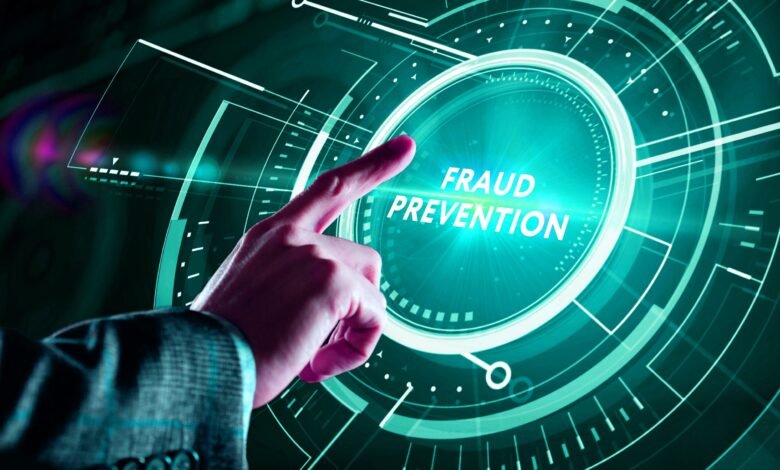Healthcare Fraud: Detecting, Reporting, and Preventing

Healthcare fraud is a pervasive issue that not only drains valuable resources but also puts patients’ well-being at risk. It involves deceitful practices committed by individuals or organizations within the healthcare industry, aimed at wrongfully obtaining money or benefits. From billing for services not rendered to prescribing unnecessary treatments, healthcare fraud takes various forms and can occur at any point in the healthcare system. In this article, we will delve into the intricacies of healthcare fraud, focusing on how to detect, report, and prevent it effectively.
Understanding Healthcare Fraud
Healthcare fraud encompasses a wide range of illicit activities aimed at exploiting the healthcare system for financial gain. These activities may include billing for services not provided, kickbacks, upcoding, and identity theft, among others. By understanding the various types of fraud schemes, stakeholders can better identify and combat fraudulent practices within the healthcare sector.
Signs and Red Flags
Recognizing the signs of healthcare fraud is essential for early detection and intervention. Common red flags include a high volume of unnecessary medical services, duplicate billing for the same services, and falsified documentation to support fraudulent claims. By remaining vigilant to these indicators, individuals can help prevent fraudulent activities from going undetected.
Reporting Healthcare Fraud
Reporting instances of healthcare fraud is crucial for holding perpetrators accountable and preventing further harm. Individuals can report suspected fraud to relevant authorities, such as the Department of Health and Human Services or the Office of Inspector General. Whistleblower protections are in place to safeguard individuals who come forward with information about fraudulent activities.
Investigating Healthcare Fraud
Investigating healthcare fraud requires a systematic approach and collaboration among various stakeholders, including law enforcement agencies, regulatory bodies, and healthcare providers. Investigators play a critical role in gathering evidence, conducting interviews, and building cases against perpetrators of fraud.
Legal Consequences
Healthcare fraud carries significant legal consequences, ranging from civil fines and penalties to criminal prosecution. Perpetrators may face civil lawsuits, criminal charges, and exclusion from participating in federal healthcare programs. Regulatory actions, such as license revocation and debarment, may also be imposed on individuals or entities found guilty of fraud.
Read More: Healthcare Regulations Demystified: Compliance and Best Practices
Preventing Healthcare Fraud
Preventing healthcare fraud requires a multi-faceted approach that includes implementing robust compliance programs, providing comprehensive employee training, and leveraging technological solutions for fraud detection and prevention. By fostering a culture of integrity and accountability, healthcare organizations can mitigate the risk of fraud and protect patients’ interests.
Technological Solutions
Advancements in technology, such as data analytics and artificial intelligence, have revolutionized fraud detection and prevention in healthcare. These tools enable organizations to analyze large volumes of data, identify patterns of fraudulent behavior, and detect anomalies that may indicate potential fraud. By harnessing the power of technology, healthcare providers can strengthen their fraud prevention efforts and safeguard their financial resources.
Patient Education
Educating patients about healthcare fraud is essential for empowering them to recognize and report fraudulent practices. Patients should be informed about their rights and responsibilities, including the importance of safeguarding their personal information and questioning suspicious billing practices. By actively involving patients in fraud prevention efforts, healthcare providers can enlist their support in combating fraudulent activities.
Collaboration in Fraud Prevention
Collaboration among government agencies, law enforcement entities, and private sector organizations is crucial for effectively combating healthcare fraud. Information-sharing platforms and collaborative initiatives facilitate the exchange of data and intelligence, enabling stakeholders to identify emerging fraud trends and coordinate enforcement efforts. By working together, stakeholders can enhance their fraud prevention strategies and achieve greater impact in deterring fraudulent activities.
Case Studies
Examining real-world examples of healthcare fraud cases provides valuable insights into the tactics used by perpetrators and the consequences of fraudulent behavior. By studying these cases, stakeholders can learn from past mistakes and implement proactive measures to prevent similar incidents in the future. Case studies also highlight the importance of effective detection, reporting, and enforcement mechanisms in combating healthcare fraud.
Future Trends
The landscape of healthcare fraud is constantly evolving, with perpetrators employing increasingly sophisticated tactics to circumvent detection. Future trends in healthcare fraud may include the use of emerging technologies, such as blockchain and telemedicine, to facilitate fraudulent activities. As fraud tactics evolve, stakeholders must remain vigilant and adapt their fraud prevention strategies accordingly to stay ahead of the curve.
Ethical Considerations
Balancing the need for fraud detection with patient privacy and professional integrity poses ethical challenges for healthcare organizations and providers. It is essential to uphold ethical principles while investigating suspected instances of fraud and ensure that patient’s rights are respected throughout the process. By adhering to ethical standards, healthcare stakeholders can maintain public trust and confidence in the integrity of the healthcare system.
Global Perspective
Healthcare fraud is not limited to any specific geographic region and poses challenges on a global scale. International cooperation efforts, such as information-sharing agreements and joint enforcement actions, play a crucial role in combating cross-border healthcare fraud. By collaborating with their counterparts in other countries, stakeholders can leverage collective resources and expertise to address the global threat of healthcare fraud effectively.
Read More: Legal Aspects in the Healthcare Industry: Upholding Patient Rights
Conclusion
In conclusion, healthcare fraud poses significant risks to patients, healthcare providers, and the broader healthcare system. By understanding the various types of fraud schemes, recognizing red flags, and implementing robust prevention measures, stakeholders can work together to detect, report, and prevent fraudulent activities effectively. Through collaboration, innovation, and ethical conduct, we can safeguard the integrity of the healthcare system and ensure that patients receive safe, high-quality care.
FAQs
How prevalent is healthcare fraud?
Healthcare fraud is a pervasive issue that affects the entire healthcare industry, costing billions of dollars annually.
What role do healthcare professionals play in preventing fraud?
Healthcare professionals play a crucial role in preventing fraud by remaining vigilant, reporting suspicious activities, and adhering to ethical standards.
Are there specific laws targeting healthcare fraud?
Yes, there are numerous laws and regulations at both the federal and state levels aimed at combating healthcare fraud, including the False Claims Act and the Anti-Kickback Statute.
Can patients be held accountable for healthcare fraud?
Patients themselves are not typically held accountable for healthcare fraud unless they are actively involved in fraudulent activities, such as providing false information to obtain healthcare services.
What resources are available for individuals who suspect healthcare fraud?
Individuals who suspect healthcare fraud can report their concerns to various authorities, including government agencies, law enforcement entities, and whistleblower hotlines.











